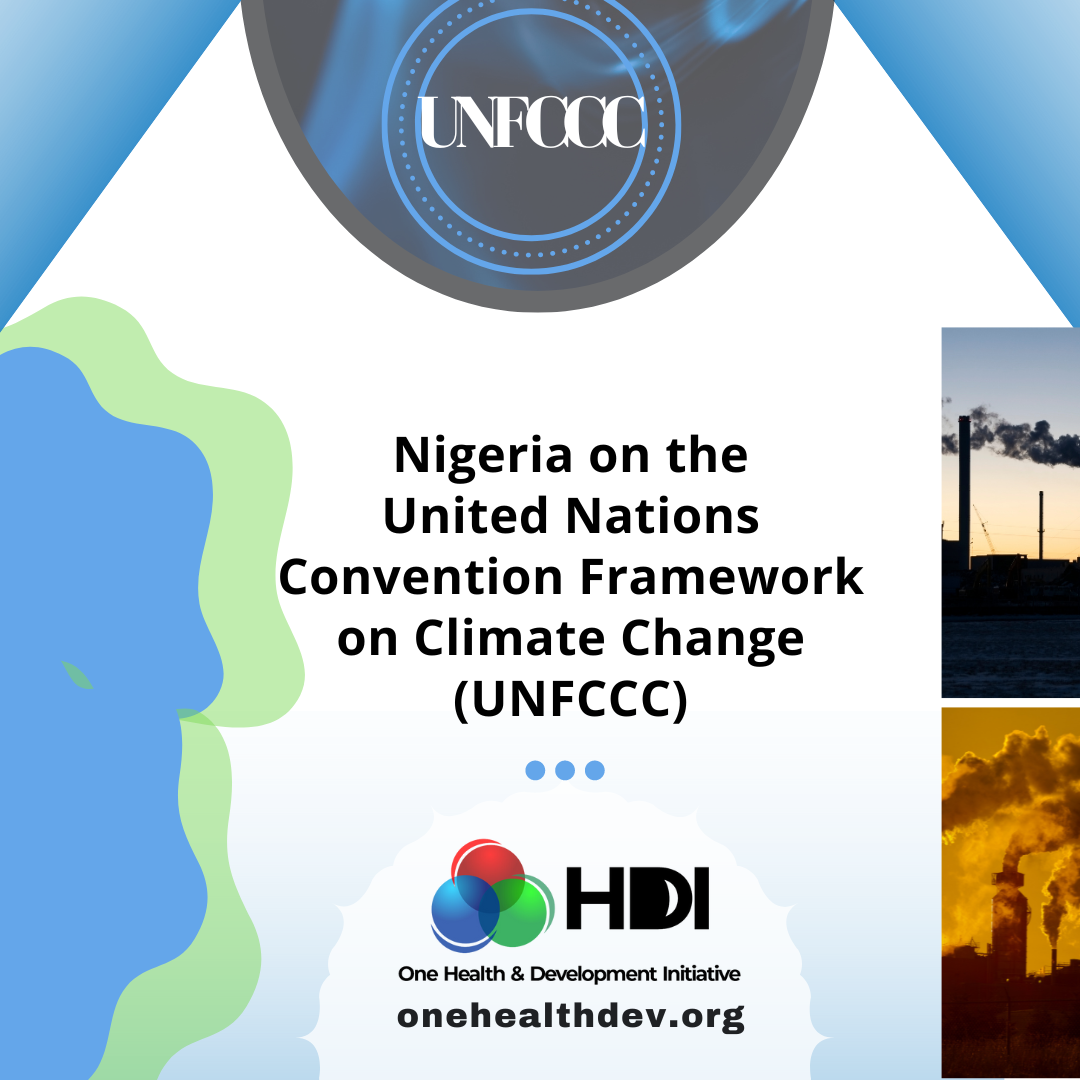
The United Nations Framework Convention on Climate Change (UNFCCC) was adopted in 1992 as an international treaty. It aims at addressing global warming and its impacts. The convention outlines a framework for the mitigation of greenhouse gas [GHG] emissions and adaptation to the adverse effects of climate change. Nigeria, as a signatory to the UNFCCC, has committed to take action towards challenging its climate change crisis.
Nigeria remains vulnerable to the impacts of climate change due to a lot of factors like industrialization and manufacturing, burning of hydrocarbon products, emission of greenhouse gasses from vehicles, power generation, and so forth. The country is susceptible to flooding, drought, desertification, and other extreme weather events or consequences of these. The impacts of such events have devastating economic, social, and environmental implications for the country. To safeguard itself from this harm, Nigeria has focused on the implementation of the UNFCCC and the Paris Agreement, which builds on the UNFCCC, to mitigate and adapt to climate change occurrences, and their consequences.
The Nigerian government has taken several steps to address climate change and fulfill its commitments to the UNFCCC. In 2016, Nigeria submitted its Nationally Determined Contribution (NDC), which outlined the country’s plans for reducing greenhouse gas emissions and adapting to the impacts of climate change. This NDC set an objective for Nigeria to reduce its emissions by 20% by 2030, with the potential to increase this target to 45% with international support.
Nigeria’s most recent -2021 Nationally Determined Contribution, puts forth an even more ambitious unconditional target of a 47% reduction of GHG emissions provided they’re supported by other international actors. This implies that there is much will for Africa’s largest economy to significantly cut its GHG emissions, and lead a more climatically-sensitive economy.
To achieve these targets, Nigeria has implemented several policies and initiatives, including the establishment of the Green Climate Fund, the National Forest Policy, and the 2021 Climate Change Act. The Nigerian government has also launched the Green Bonds Programme, which seeks to raise funds for sustainable projects, and the Renewable Energy Master Plan, which seeks to increase the country’s use of renewable energy sources.
In addition to these initiatives, Nigeria has also taken steps to build resilience to the impacts of climate change. The country has developed a National Adaptation Strategy and Plan of Action on Climate Change for Agriculture, Water Resources, Health, and Disaster Risk Reduction. These plans aim to improve the country’s capacity to cope with the impacts of climate change, including through the development of early warning systems, the promotion of sustainable land management practices, and the implementation of measures to improve water supply and sanitation.
Despite these efforts, Nigeria faces significant challenges in addressing climate change. One major challenge is the lack of access to funding and technology to implement climate change mitigation and adaptation projects. The country’s dependence on fossil fuels for energy also presents a significant challenge to its commitments toward the UNFCCC of reducing greenhouse gas emissions. The continued use of fossil fuels increases the country’s greenhouse gas emissions, and Nigeria must transition to cleaner energy sources to achieve its emissions reduction targets.
Looking at its commitments which are evident in its 2015 Nationally Determined Contribution, and that which comes in 2021 thereafter, Nigeria is positioned towards making a significant contribution to curb the emission of huge quantities of greenhouse gasses. It is clear that this way, Nigeria strongly adheres to the optimal climatic objectives set forth by the United Nations Framework Convention on Climate Change, and the Paris Agreement.
With a check on factors fueling poor climate outcomes like: degenerative human activities tied to intense economic activities, Nigeria undoubtedly safeguards it’s self from suffering the consequences of poor climatic conditions like: spillover events, loss of biodiversity, poor agricultural output, and other One Health related issues. Having better climate outcomes in Nigeria is a guarantee for good environmental health, animal’s health, and human. It is thus important that Nigeria uses the UNFCCC as a yardstick for better one health outcomes.





